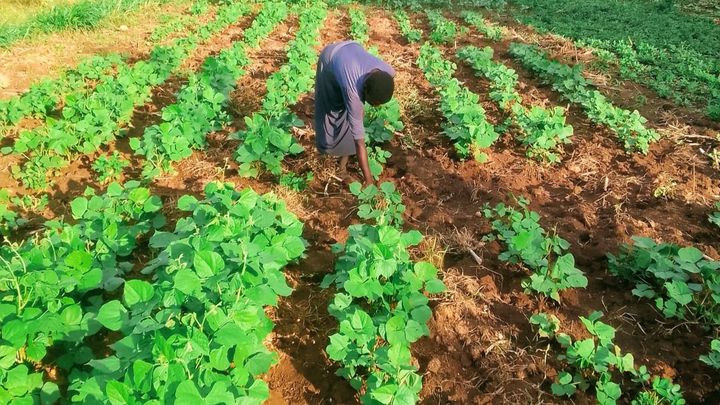
Help Kenda Build a Seed Bank for Indigenous Seeds
Donation protected
My life’s journey began in the lush landscapes of Butere, within the heart of Kakamega County in Western Kenya. I am Laetitia Mukungu, and as I reflect from my current position as a Master's student in Plant Science at the University of Manitoba, Canada, my mind is vividly painted with memories of my childhood in a small, yet vibrant Kenyan village. Growing up, I was cradled in the nurturing arms of my grandparents, smallholder farmers whose lives depended on the soil. Our family farm was a living site of diverse crops and livestock that grew in harmony providing both sustenance and ecological balance. It was here, in the soils of Butere, that the seed of my lifelong passion for agriculture was firmly planted.
I fondly remember the village's agricultural abundance. Locally grown fruits and vegetables were bountiful. The village was evidence of the success of community-based agriculture, where kitchen gardens, tended predominantly by women, were a common sight. These gardens were full of African indigenous vegetables - African nightshade, jute mallow, African kale, cowpeas, and more. These vegetables were not just food; they were cultural heirlooms, rich in nutrients, and adapted to the local conditions. The practice of growing and preserving one's seeds for the next planting season was common, echoing a deep-rooted sense of sustainability and self-sufficiency.
My educational journey in agriculture took me across continents. After obtaining my Bachelor’s in Agronomy from EARTH University in Costa Rica, a place renowned for its innovative approaches to tropical agricultural education and sustainability, I moved to the University of Manitoba in Canada for my Master’s degree. This global academic experience exposed me to diverse agricultural practices, significantly broadening my understanding and perspective.
However, it was upon my return to Butere during the COVID-19 pandemic that I confronted a shocking reality. The once-thriving tradition of kitchen gardens was eroding as the African indigenous vegetable seeds slowly disappeared. Furthermore, the majority of the existing private seed companies in Western Kenya supply mainly exotic cereal seeds plus synthetic fertilizers to farmers. As the inaccessibility to the seeds caused a decline in production, women, traditionally the custodians of these gardens, faced vegetable shortages. As a result, most families’ diets have been limited to the consumption of a few, available exotic vegetables mainly kale and spinach. The erosion of this practice was more than a loss of food sources; it signified the fading of a cultural and nutritional cornerstone.
In response to the decline of traditional agriculture in my community, I founded Kenda in collaboration with two other Kenyan ladies, Abigael Pertet and Ellen Savude, who shared the same goal. We are now a team of three women who lead the Kenda project. This initiative is dedicated to revitalizing the cultivation and celebration of African indigenous vegetables by supplying women farmer groups with seeds. Kenda collaborates with women smallholder farmers, leveraging their deep-rooted knowledge in local seed production and cultivation. From a survey we did, many smallholder farmers in Butere have shown interest in growing indigenous vegetables but have no reliable access to seeds. Kenda will strive to become a leader in the supply of indigenous vegetable seeds in Kenya by creating a convenient model that is decentralized and locally based for easy access to the targeted beneficiaries.
For a constant supply of indigenous vegetable seeds, Kenda requires a seed storage facility to extend our reach to families from a wider geographic area. In order to construct a seed bank ($3000), purchase seed storage containers ($500), install a solar panel for lighting ($300), purchase initial seeds ($500), and conduct field trials ($700) of the selected indigenous seeds on a demonstration plot before distributing them to the project beneficiaries, Kenda needs CAN$ 5000.
We are currently seeking support through fundraising to bring this vision to life. Your contributions will be instrumental in fortifying my community's resilience, guaranteeing the continued growth and accessibility of these vital vegetables.
 Organizer
Organizer
Laetitia Mukungu
Organizer
Winnipeg, MB